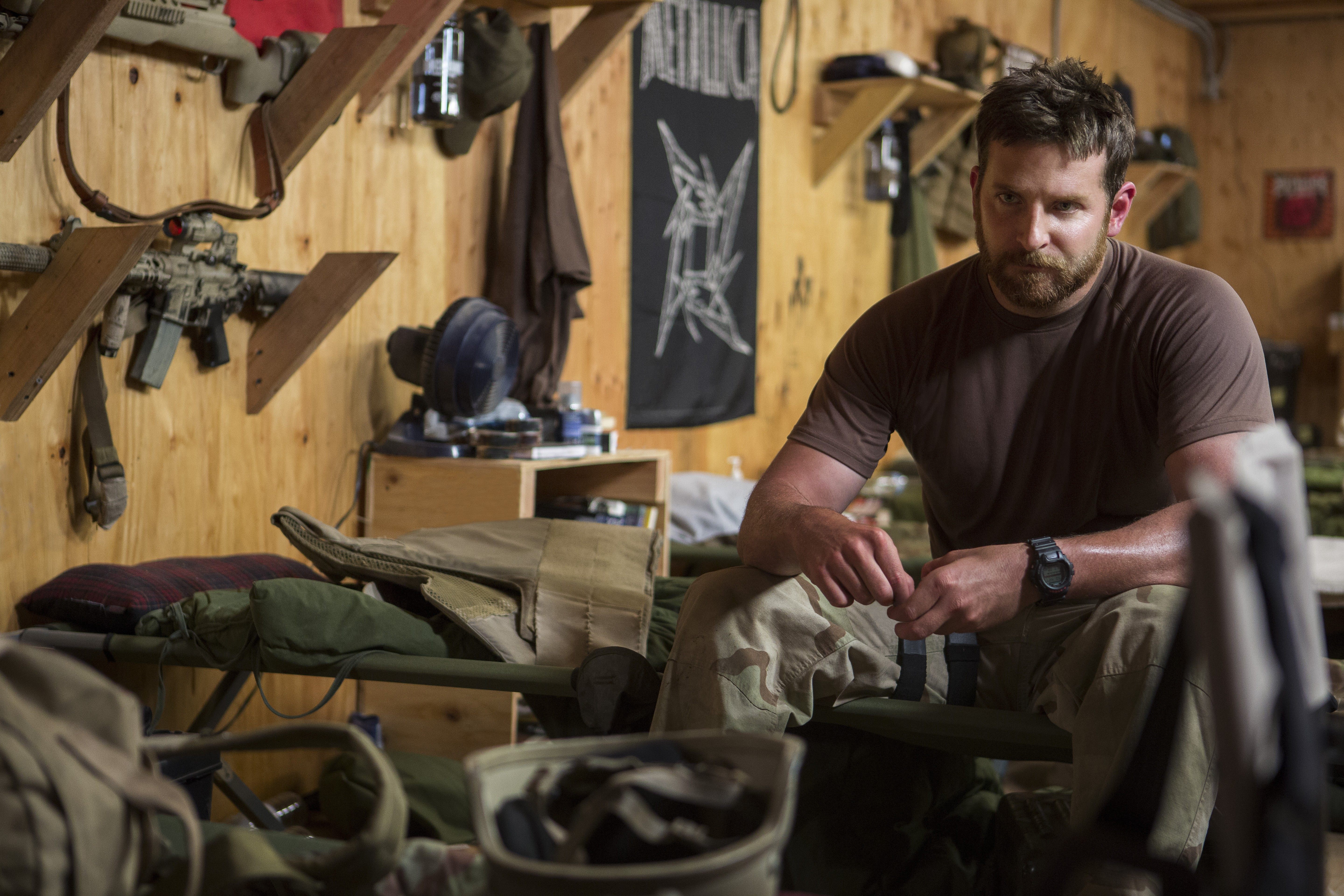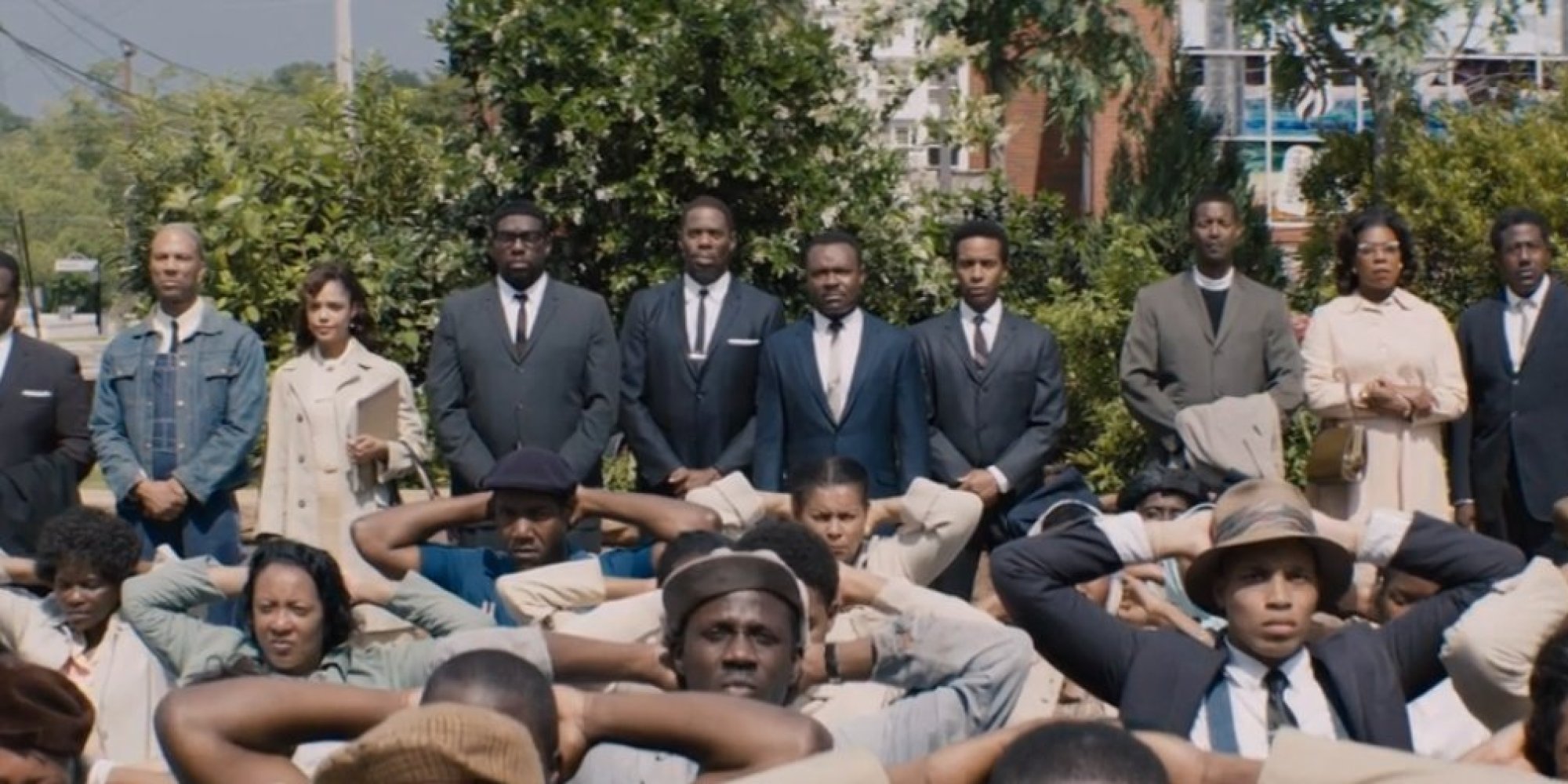"When the legend becomes fact, print the legend." That classic quote from John Ford's "The Man Who Shot Liberty Valance" feels so tailor made for "American Sniper," it must be emblazoned on a plaque above director Clint Eastwood's bathroom mirror. But what if the fact of sniper Chris Kyle is more compelling? And what of a movie that tries to print both?
Such is the challenge set by "American Sniper," a movie sometimes corny, often times harrowing, but also with a sly intelligence lurking beneath the surface, perpetually on the cusp of revealing itself. Here is a movie with no easy moralizing, no sermons, no revelations, no a-ha moments. Instead it offers itself, as it is, like it is, and take from it what you will.
How much you take largely depends on what you think the movie's up to in the first place. So man, oh man, lets tread carefully. Poor Seth Rogen just got banned from a steakhouse.
After a brief scene of Kyle (a stunningly transformed Bradley Cooper) eyeing a mother and child in Afghanistan, showcased in all the trailers, we flash back to his childhood, and from there, "American Sniper" is lean and linear as an arrow. Kyle grows into an aimless man in his 20s riding in rodeos. He joins the military to find direction. He falls for Taya (a more than capable Sienna Miller). 9/11 happens and he ships overseas, honing a real talent for sharpshooting that claims more than 100 confirmed kills and the nickname "Legend." Soon his fame spreads throughout insurgant territories and large bounties are placed on his head as he becomes adversaries with a sniper nicknamed Mustafa.
Eastwood's love-it-or-hate-it minimalism comes on full force here. As a filmmaker, he rarely adapts to a screenplay, instead applying his default style to it, letting the chips fall where they may. This leads to some fairly consistent misfires (can you believe this is the same director behind the lackadaisical "Jersey Boys" adaptation only six months ago?). But with screenwriter Jason Hall's work on "American Sniper," it's the kind of marriage where both parties compliment each other's strengths, and even if they don't cancel each other's weaknesses, at least they hide them well.
Ain't nobody ever gonna call Eastwood a stylist. No coffee table books will ever showcase his trademark shots. If anything sums the Eastwood mantra, it's that of the invisible force of God - form your cast and your script, put them in front of the camera, and get outta the way. So how does that elevate "American Sniper," when I can barely even remember his "Flags Of Our Fathers"? Because it creates throughout the movie a universal truth. As the movie's Chris Kyle (an important distinction versus the real Chris Kyle) volleys between his tours of duty in the Middle East and back home with his wife and children, Eastwood's flat, crisp filmmaking creates nary a distinction between these two worlds. War and home offer little difference for Kyle. The same stress and anguish he feels on the battleground follows him to his family.
What could thus be written off as typical bland choices from Eastwood quietly becomes one of the more harrowing, subjective portrayals of PTSD on film in recent memory. Battle scenes carry the expected tense weight, but something as simple as a drive on an American freeway almost feels like a chase sequence, as every passing car feels like a potential threat. It's a subtle effect, but a potent one, building as the movie progresses without ever rubbing your face in it.
That's confidence as a storyteller.
Chris Kyle in the movie is neither vilified nor deified, simply presented. He's absolutely flawed, calling insurgents "savages" and in the movie's climax, allowing his obsessive machismo to get the better of him and endangering his men in the process. It's the push/pull of his personality that Eastwood and Hall wisely never take a blatant side on, and this lack of a stance seems to turn some people off. Further controversy includes the movie's purported extreme jingoism, treating the American military as the end-all heroes of the world. To that end, if you'll believe the hype, "American Sniper" is either morally bankrupt propaganda cheering the killing of brown people or a noble salute to fallen heroes that sends you home dreaming of raising a flag whose size would put a used car lot to shame.
These two extremes simply refuse to engage the movie for what it is, while criticizing it for being too simple minded, for not delving into the mind of Kyle better, is reasonable, but I feel misses the point. A different movie might have asked tougher questions. What drove Kyle to be a sniper? How does he truly feel about the war and the 100+ people he killed. Is he, in fact, a racist? A different movie, yes. But not necessarily a better one.
Instead of cracking Kyle open, Eastwood and Hall pull the more subtle effect of allowing him to remain static and then thrusting a world of opposition against him. Kyle in the movie never relents from his belief that the wars in Iraq and Afghanistan are justified. He never openly views those he killed as anything but savages. But notice the quiver in Cooper's voice when a PTSD therapist asks if he feels he can answer to God for what he did overseas. Notice the flickering, barely-there pain in his eyes when Miller begs him to stay home. It's a highly subjective experience that trusts Cooper to convey a massive amount of emotional weight with barely any indicating dialogue.
You are not required to like "American Sniper." You are not required to even see "American Sniper." But to dismiss it either for what you think it is or what you wanted it to be, I feel, does it a great disservice. "Saving Private Ryan" offered a more visceral portrayal of war. "The Hurt Locker" delved better into the moral quandary of needing war to function when homelife just doesn't cut it anymore. That doesn't mean there isn't a place for "American Sniper" too, and that place isn't as the lightning rod for bickering cultural extremes.

